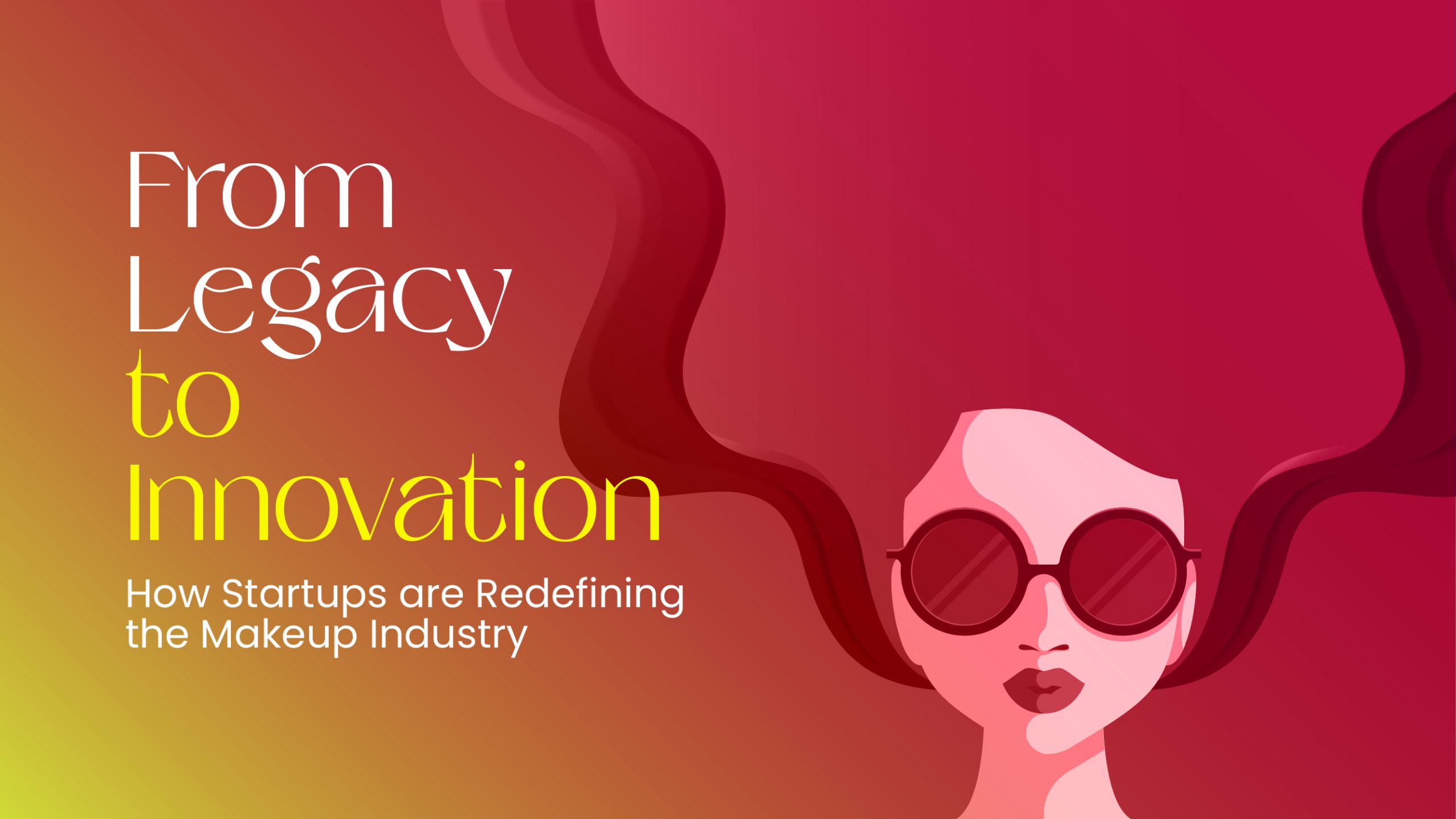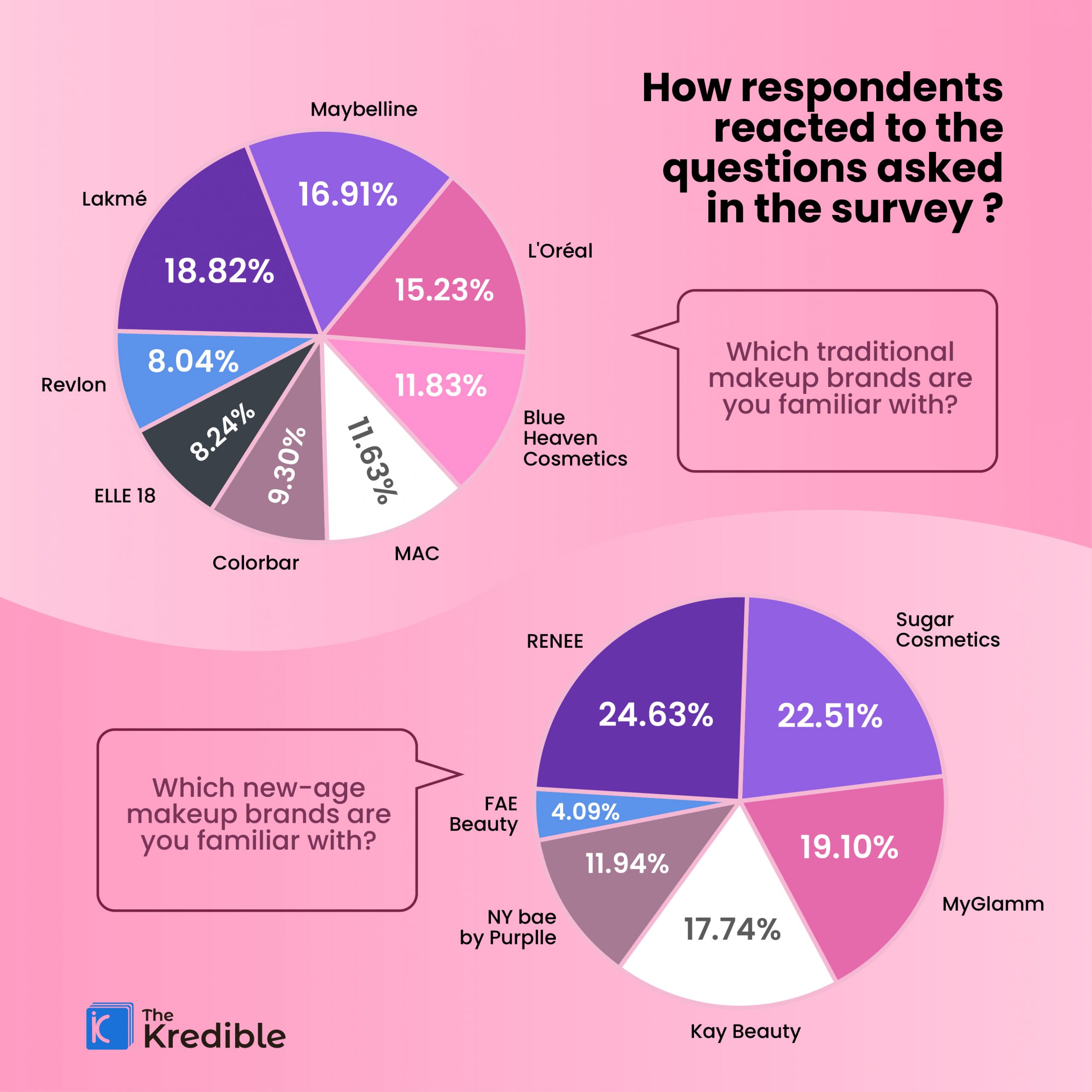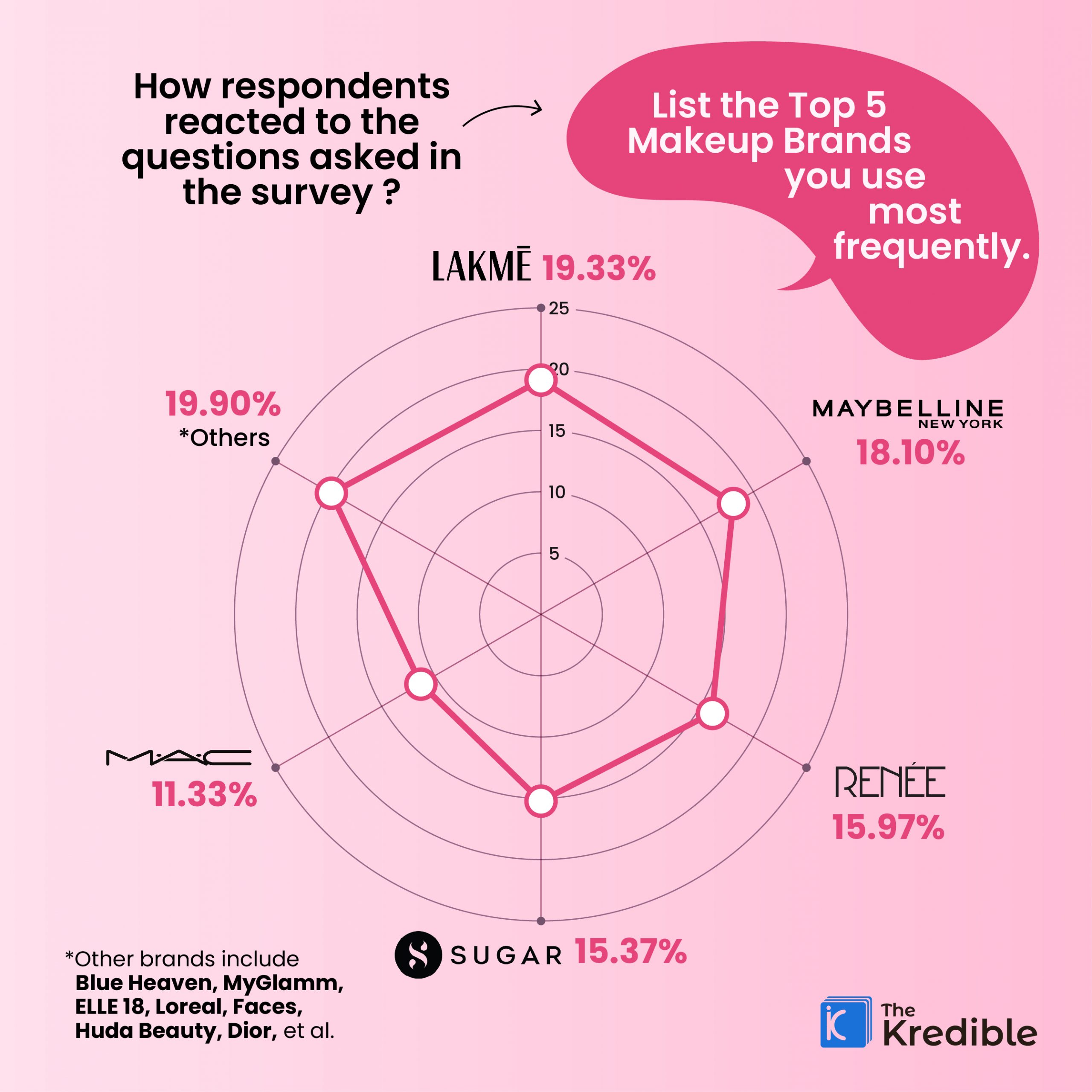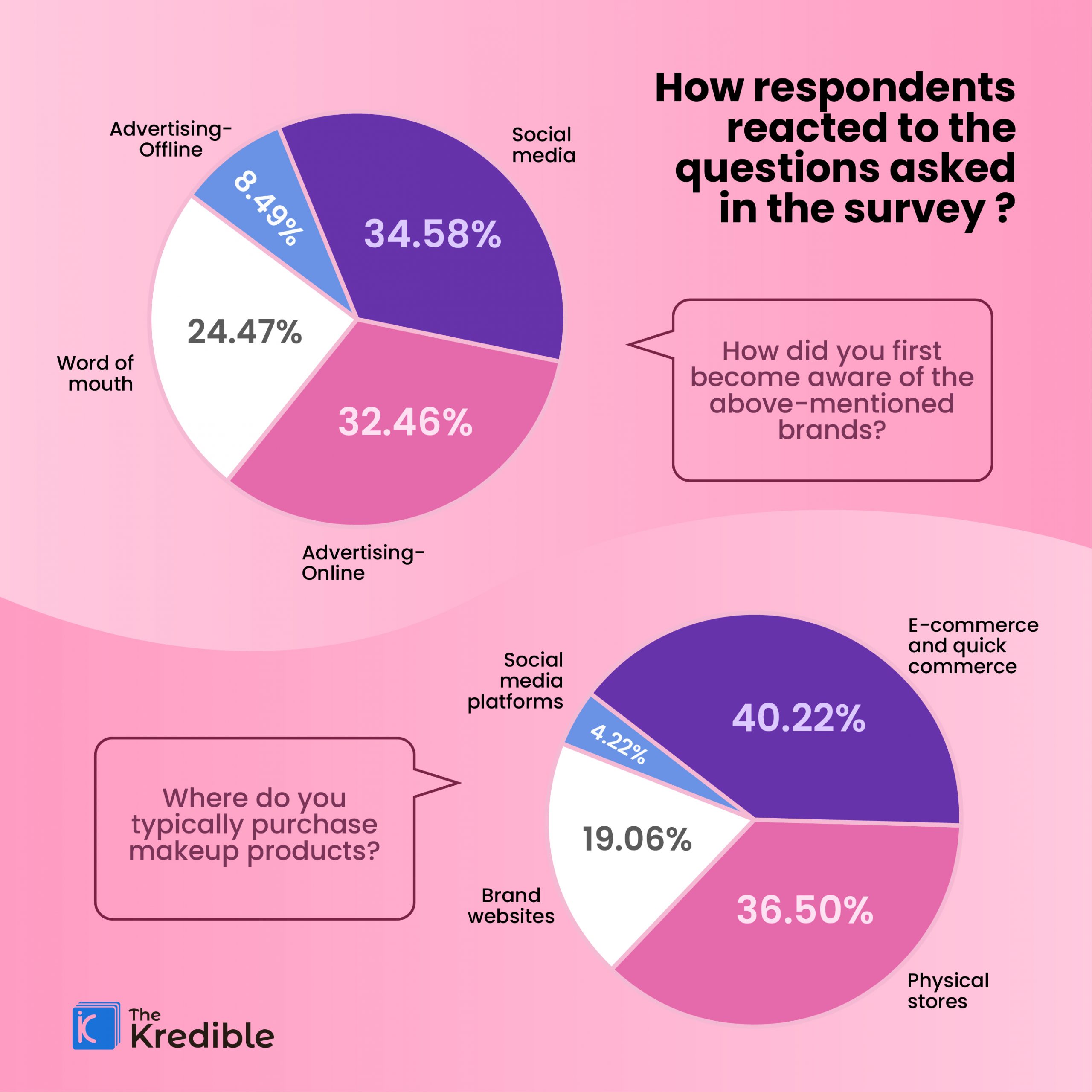The Indian beauty industry is witnessing a major transformation as new-age startups like RENEE Cosmetics, Sugar Cosmetics, and MyGlamm challenge established players such as Lakme, Maybelline, and MAC Cosmetics. These emerging brands are gaining traction, especially among Gen Z and Millennial consumers, by offering innovative products, ethical practices, and strong digital engagement. This report by TheKredible explores the changing dynamics, focusing on consumer preferences, brand loyalty, and the factors driving this shift.
Key Focus Areas
- Product Innovation: Unique and sustainable product offerings.
- Geographic Expansion: Reach across urban, suburban, and rural markets.
- Consumer Behavior: Key preferences influencing brand choices.
- Growth Drivers: Factors behind the success of new-age brands.
Methodology
The research includes an extensive review of market reports and a nationwide survey. The survey captures insights into brand awareness, consumer preferences, and usage patterns.
Survey Demographics:
- Age: 65.7% (14–24 years), 34.3% (25–34 years)
- Location: Urban (85.7%), Rural (10.5%), Suburban (3.8%)
- Occupation: Students (68.6%), Professionals (21.9%), Homemakers, Self-employed, and Retirees
- Income: 77.1% earn less than Rs 5 LPA
This diverse sample highlights the preferences of young, urban, and value-conscious consumers, providing a comprehensive view of the evolving market.
Key Findings
- Brand Awareness and Recognition
- Leading New-Age Brands: RENEE (24.6%) leads in awareness, followed by Sugar (22.5%) and MyGlamm (19.1%).
- Role of Social Media: Platforms like Instagram, influencer marketing, and digital ads have been crucial for these brands to gain visibility.
- Brand Usage and Preferences
- Top Traditional Brands: Lakme (19.3%) and Maybelline (18.1%) remain the most used.
- Strong Performance by Startups: RENEE (15.9%) and Sugar (15.3%) are emerging as top choices among new-age players.
- Key Factors: Consumers prioritize price, quality, and ethical practices such as cruelty-free products and sustainable packaging.
- Brand Switching Behavior
- Flexibility: Consumers are open to experimenting with brands that align with their values.
- Innovation: Unique offerings, like multitasking makeup products, drive switching behavior toward startups like RENEE and Sugar.
- Product Preferences and Shopping Patterns
- Popular Products: RENEE’s lipsticks and eyeliners are favorites among respondents.
- E-commerce Advantage: Startups leverage platforms like Amazon, Flipkart, and quick-commerce apps (BlinkIt, Zepto, Instamart), along with their own websites, to drive online purchases.
- Sustainability and Clean Beauty
- Consumer Priorities: Sustainability is increasingly important, with a significant portion of respondents rating it 4 or 5 on a 5-point scale.
- Clean Beauty Influence: Over half the respondents say clean beauty impacts their buying decisions.
- Digital Engagement and Customer Experience
- Social Media Strategy: RENEE, Sugar, and MyGlamm have effectively utilized social media and influencer partnerships to build strong engagement.
- Digital Discovery: While overall interaction remains occasional, Sugar’s influencer-driven campaigns give it a competitive edge.
Impact of Gen Z on the Makeup Industry
Gen Z is shaping the future of the Indian beauty market. Tech-savvy and value-driven, this generation demands authenticity, inclusivity, and ethical practices. Startups like RENEE, Sugar, and MyGlamm are successfully aligning their strategies with Gen Z’s preferences for convenience, sustainability, and innovation.
Geographic Reach and Expansion
- Traditional Brands: Leverage strong distribution networks in urban and rural markets.
- New-Age Brands: Focus on digital-first strategies to reach urban consumers and are now expanding into suburban and rural areas as awareness grows.
Conclusion
The Indian beauty market is undergoing a shift, with startups like RENEE Cosmetics leading the charge. Their focus on innovation, ethical practices, and strong digital strategies has resonated with younger generations. While traditional brands like Lakme and Maybelline remain strong, they must adapt to changing consumer preferences to stay competitive. The emphasis on sustainability, inclusivity, and clean beauty will continue to drive the future of the industry, with new-age brands setting the benchmark for innovation and growth.



